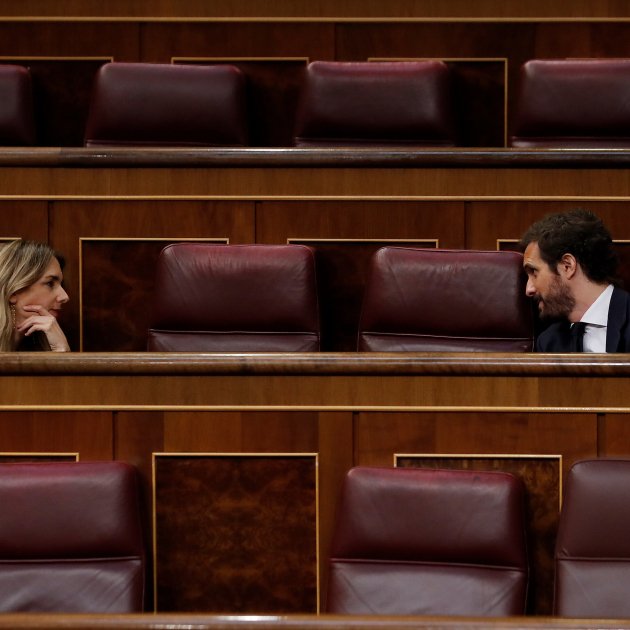There is a more than ample majority in favour, and therefore Spain's lower house of parliament, the Congress of Deputies, will investigate the major opposition group, the Popular Party (PP) over the the so-called Operation Kitchen. Parliamentary sources say that today there have been contacts between the PSOE and Unidas Podemos to present a joint request for a commission of inquiry, which would be supported by the pro-independence and pro-sovereignty parties ERC, JxCAT, the CUP, the BNG, Més País, Compromís and Bildu which announced yesterday that they were beginning a process to instigate a parliamentary investigation into the use of a Spanish "para-police" force for political party ends.
Thus the bridges between the government of Pedro Sánchez and the PP of Pablo Casado have now been burnt. The green light from the PSOE and Unidas Podemos to the creation of the new commission of inquiry means that it will go ahead without any problems, overcoming firstly the filter of the procedural Bureau, as well as having the support of the majority of the parliamentary chamber itself. PP members will be thinking back to other commissions of inquiry, such as the one that accredited the existence of a "patriotic police" or the existence of an illegal parallel accounting system in the right-wing party.
According to the investigating judge's conclusions on Operation Kitchen, made public this week after being kept secret under a court order till now, during the years of the Mariano Rajoy government, the party plotted to spy on and steal compromising information in the possession of Luis Bárcenas, the PP's ex-treasurer. The then interior minister Jorge Fernández Díaz was allegedly involved in this conspiracy, along with his number two, Francisco Martínez, and the then-secretary general of the Popular Party, María Dolores de Cospedal.
The emergence of this information in the last few days has led the current PP leader, Pablo Casado, to disassociate the current PP leadership from the previous leadership. In an interview with Spanish daily El Mundo on Tuesday, Casado recalled that at the time he "was an MP for Ávila and had no responsibility in the party." He also stressed that none of the protagonists of that alleged plot are currently active in politics.
A second "Operation Catalonia"
But there are revelations that go beyond Operation Kitchen. With the departure of Fernández Díaz from the ministry in 2016, it seemed that the ghost of Operation Catalonia, the state's political dirty war aimed at creating evidence against the Catalan pro-independence leaders, would be exorcised. In fact, one of the first to removed from duty was Enrique García Castaño, head of the Central Operational Support Unit (UCAO) of the Spanish police's general iInformation commission. However, as newspaper La Vanguardia revealed today, Garcia Castaño's resignation was nothing more than a smokescreen to allow him to move to other tasks. He was allegedly recruited by José Antonio Nieto, undersecretary for security, to mount a second clandestine Operation Catalonia.
